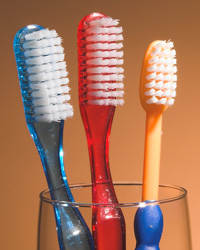Teeth Cleaning Price - Near You in
Shannon Dental Health Center
Appointments: (509) 783-0824

Michael Shannon D.M.D.
Shannon Dental Health Center
800 North Center Parkway
Kennewick, WA 99336







A negative self image can be detrimental to many facets of your life. Kennewick area dentist Dr. Michael Shannon understands the positive life-changing power that a healthy and beautiful smile can bring to you. Here at Shannon Dental Health Center, we don't want you to be embarrassed any longer. Why not take your smile - and even your life - to a new level of self-confidence and beauty?
Dr. Michael Shannon at his Kennewick dentistry practice is pleased to offer you a free smile analysis if you are 18 years old or older. Our friendly and professional team will make you feel comfortable and welcome.
We'll answer your questions and assess your dental needs to achieve long term oral health. Our goal is to make your visit enjoyable, and to give you the smile you deserve.
Would you like your smile to be a bit brighter than it is right now? We can make it happen at Shannon Dental Health Center, with professional tooth whitening for brighter natural looking teeth. Dr. Michael Shannon's Kennewick, WA area office can effectively lighten your stained or discolored tooth enamel. Whiter teeth not only look great, they improve your self-confidence.
If you want a gorgeous smile that turns heads, you may want to learn about the range of dental services offered at Shannon Dental Health Center. Kennewick area cosmetic dentist Dr. Michael Shannon is dedicated to producing quality results and beautiful smiles.
One of the first things people notice is your smile. All it takes is a single appointment or two with Kennewick area dentist Michael Shannon, D.M.D., and you, too, can have the winning, healthy-looking smile you've always wanted. The beautiful cosmetic results you'll get from Shannon Dental Health Center can be immediate and dramatic!
More Dental Hygiene Dentists in the Kennewick, WA Area Near You
Poulsbo Periodontics & Implant Center
1040 NE Hostmark Street Suite 100A
Poulsbo, WA, 98370
DOCS Education
12360 Lake City Way NE, Fifth Floor
Seattle, WA, 98125
Doctor - Activate Your Free 1stDentalHygiene Directory Listing
William S. Disantis, DD
210 South 11th Avenue Suite #45
Yakima, WA, 98902
Kim Okamura D.D.S.
11730 15th Ave. NE
Seattle, WA, 98125

